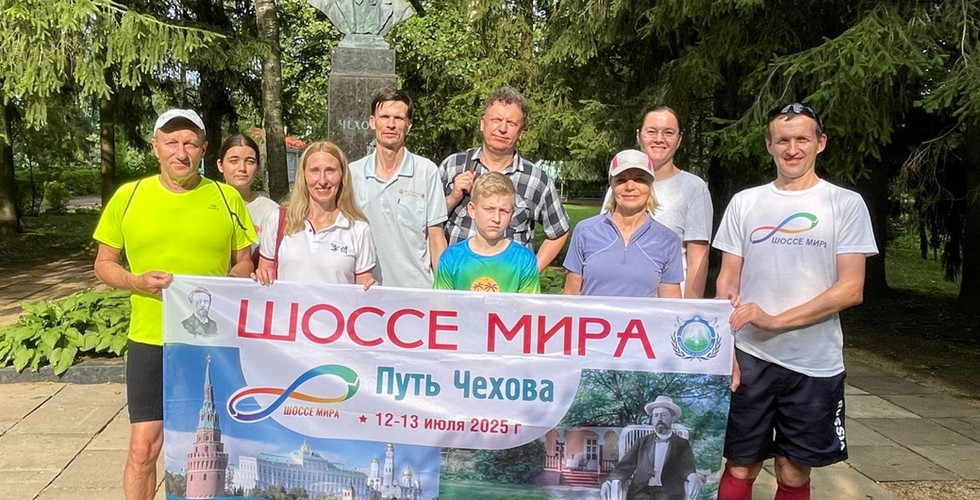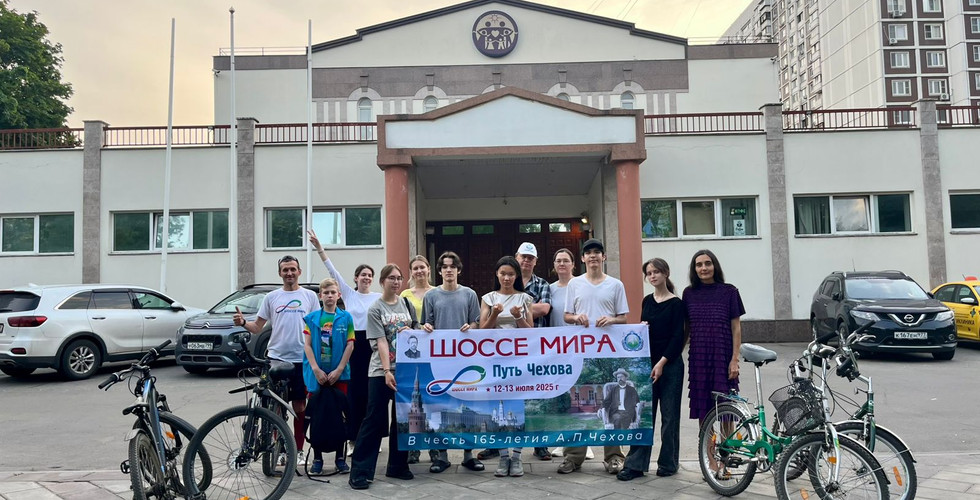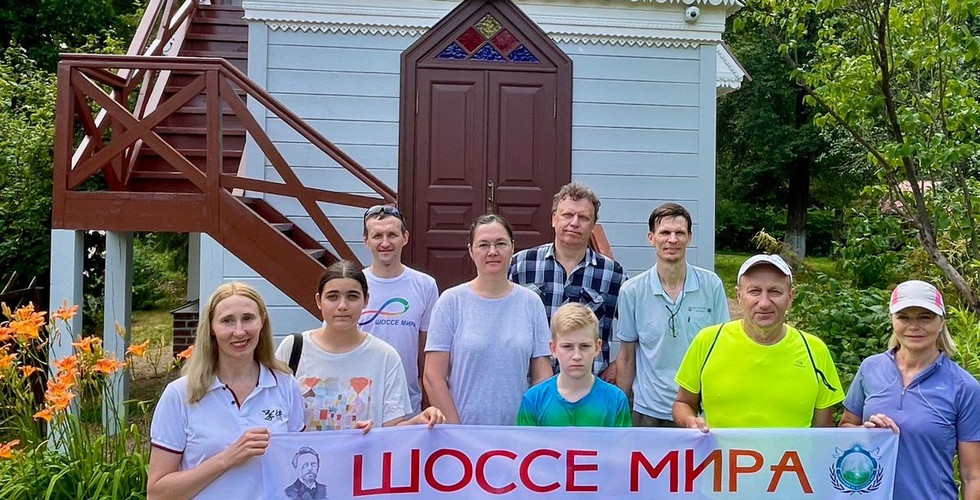Moscow Peace Road Follows Legacy of Anton Chekhov
- khwang562
- Jul 13
- 2 min read
Updated: Aug 15
Moscow, Russia – On July 12–13, UPF held a Peace Road project in Moscow dedicated to the 165th anniversary of the birth of Anton Pavlovich Chekhov, one of Russia’s greatest writers and playwrights. He is well known for his short stories and plays, including The Seagull, Uncle Vanya, and The Cherry Orchard. Chekhov is celebrated around the world for his deep psychological insight, humanism, and subtle sense of humor.
This special route was called “The Chekhov Path” and combined two main elements: an exploration of the literary legacy of Chekhov and a journey following in his footsteps, by bicycle.
On the first day, participants gathered at the A.P. Chekhov House-Museum on Sadovaya-Kudrinskaya Street in Moscow. This is the only remaining house in the city where Chekhov actually lived and worked, from 1886 to 1890. The guided tour immersed visitors in the atmosphere of the time, showcasing personal documents,
household items, and photographs related to the writer’s life. A particularly heartwarming aspect of the event was the participation of families with children, helping to pass on this cultural journey not just across cities, but across generations.
On July 13, the second day of the project took on a more athletic format. A group of cyclists rode approximately 30 kilometers through the Chekhov District of the Moscow Region. This wasn’t just a bike ride, it was a meaningful journey to an important cultural landmark: the Melikhovo Museum-Reserve, where Chekhov lived from 1892 to 1899.
In Melikhovo, participants enjoyed a tour of the historic estate. It was especially symbolic that the main house, where the Chekhov family lived, had just reopened after restoration. This was where Anton Chekhov not only resided and cared for local villagers as a physician, but also created many of his key literary works, including the short stories Ward No. 6 and The House with the Mezzanine, and his famous play The Seagull. A highlight of the visit was the small garden cottage where The Seagull was written, a space of solitude and creativity, which Chekhov described as marking a major inner turning point in his life.
What made this project especially meaningful was the choice to reach Melikhovo not by car or bus, but by bicycle, despite the hot weather and a challenging route. This reflects the living spirit of the Peace Road: uniting physical effort and personal engagement with deep respect for culture and spiritual heritage.
More than just a visit to historic sites, the journey offered participants a chance to experience Chekhov’s world firsthand, not in the stillness of a museum, but through movement, effort, joyful connection, and shared purpose.
The Peace Road continues to grow as a project that brings people together through movement, culture, and dialogue. Importantly, it’s not only about remembering great figures of the past, but also about inspiring today’s youth and families to live consciously, cherish their history, and believe in a peaceful future.
By Maria Nazarova, President, UPF-Russia July 13, 2025



















